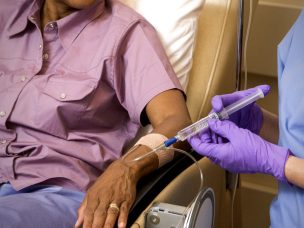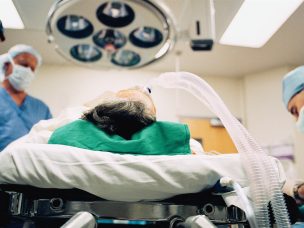HER2-positive breast cancer provides many distinct therapeutic challenges, and these can be simplified through a comprehensive understanding of the molecular subtypes characterizing different forms of heterogeneity that this cancer may exhibit. As heterogeneity is one of the leading sources of difficulty in treating HER2-positive breast cancer, understanding molecular subtyping can help create more informed novel therapeutic pathways.
In an article published in Frontiers in Oncology on October 29, 2019, a team of researchers summarize advancements in the understanding of HER2-positive breast cancer as well as the HER2-enriched subtype, with specific attention paid to explaining the intrinsic heterogeneity of HER2-positive cancer.
It is noted that the most common subtype of HER2-positive breast cancer is HER2-enriched. The HER2-enriched subtype responds positively to anti-HER2 therapies, but is also commonly found as a subtype of HER2-negative cancers. However, anti-HER2 therapies are not currently approved for treating HER2-negative cancers. The suggestion is made that reclassifying the HER2-enriched subtype could provide more appropriate therapeutic strategies on the basis of genetic and molecular biomarkers that are distinct from HER2 amplification.
The authors provide a detailed discussion of the current breast cancer classifications, and testing methods to identify HER2-positive biomarkers. This includes a discussion of histopathological subtyping, gene-expression testing, and the role of HER2 amplification in therapeutic strategizing.
The authors conclude that HER2 amplification is unsatisfactory as a biomarker used to determine which anti-HER2 therapies should be used for a given patient. This is directly related to heterogeneity in HER2-positive cancers. The authors note that “The HER2+ BC do not represent a subtype itself, but are instead dispersed along the whole breast cancer spectrum, from hormone receptor-positive luminal to hormone receptor-negative basal phenotype, with genome variations accordingly to these phenotypes and incidentally defined by a specific gene amplification.” This idea, in conjunction with the specific results discussed in detail throughout the article, leads to the conclusion that the HER2-enriched subtype is the most appropriate biomarker for prognosticating the efficacy of anti-HER2 medications.
Source:
Deciphering HER2 Breast Cancer Disease: Biological and Clinical Implications










